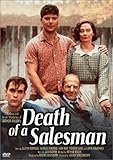[singlepic id=86 w=320 h=240 float=left]
[cf. Gabler 3:5, 1922 3:5]
Mulligan has come to the top of the tower to shave. There’s light there, and a beautiful view. He associates his morning ritual with a Catholic mass, and summons Stephen Dedalus upstairs to join him.
What he’s saying translates as: “I will go up to God’s altar.” More pertinently, it was one of the first things the priest said at the beginning of the Catholic mass, back when the Catholic mass was said in Latin. Here‘s a rather lovely version.
So yes, Mulligan’s giving a little parody of the mass, and yes, this is a wicked and kinda funny thing to do.
I think it’s worth noting a few points of cultural context. 1) the “introibo” would not have been an obscure phrase to any Catholic reader of Ulysses in 1922, or up to the end of the Latin mass in the 1960’s. This would have been as familiar as “play ball!” to a baseball fan. 2) to a Catholic audience, in 1904 or 1922, this is sacrilege. And what follows is much worse.
What we’re supposed to think of this is a little hard to say. What Joyce thinks of it we don’t know, but (within the fourth wall) what Stephen thinks of it, we’ll see later. Joyce was an unbeliever, but the Catholicism was so deeply dyed into him, that he was really more Catholic than the Catholics. The groundwork is all so elaborately laid out in *A Portrait of the Artist as a Young Man* that it seems superfluous to talk any more about it, but I’ll say for the first time of many times, that Joyce was not Stephen. it can be useful to forget that Joyce was not Stephen, but still and forever, they are not the same.
And what is Mulligan carrying: “a bowl of lather, on which a mirror and a razor lay crossed.” On one level, a man is simply about to shave. But Joyce’s careful syntax invites a deeper dive. Mulligan is about to begin chanting the opening prayer of the Catholic mass, and the visual cues Robert’s been giving us have primed us to see him as a kind of priest. But here, for the moment, we get to look at Mulligan’s tools: a mirror, and a razor. The razor cuts and makes distinctions–hair from skin, mostly (analysis?). The mirror reflects an image, sends back to its viewer the appearance of a person where before there had only been a disembodied experience of impressions and thoughts (synthesis?). [And yes, I’m thinking about Jacques Lacan and his “mirror stage” here.] Neither the mirror nor the razor creates anything really new. This is the opposite of what is supposed to happen during a real mass, when the priest uses his tools and the magic of transubstantiation to bring the body and blood of Christ to the table.
Yeah, I’m pushing it a little hard here, but I do think we’re meant to see Mulligan as energetic and vital, but also as bankrupt, as barren, as a parasite. Dedalus is weak and ineffectual, but he has the creative vitality and inner strength that Mulligan lacks.
So why does Joyce have Mulligan wear a yellow robe? Don Gifford & Bob Seidman’s Ulysses Annotated might be useful here. Gifford cites a volume on Christian symbolism: “Yellow is sometimes used to suggest infernal light, degradation, jealousy, treason, and deceit. Thus, the traitor Judas is frequently painted in a garment of dingy yellow (I’ve been trying to get that picture–which is an image of “The Kiss of Judas” by Giotto– see below. You can click to enlarge the image.
[singlepic id=84 w=320 h=240 float=left]
Why does Mulligan call call Stephen “fearful”? Probably because of an incident that happened during the night with a house visitor–we’ll be hearing about that soon. But also because of Mulligan’s blasphemy, which we’ve been chatting about over the last few frames. Stephen isn’t a believer, but he’s not above hedging his bets.
Oliver St. John Gogarty, the person on whom the character of Mulligan is based, once referred to Joyce as an “inverted Jesuit.” Joyce identified closely with the Jesuit order–he was educated in Jesuit schools as a boy, and in one famous anecdote, said “you allude to me as a Catholic; you ought to allude to me as a Jesuit” (see Kevin Sullivan’s Joyce among the Jesuits for an exhaustive discussion). The Society of Jesus, then and now, has been closely associated with education based on rigorous and independent scholarship. Mulligan’s ‘fearful Jesuit’ may also pick up on the dreaded reputation of Jesuits as interlocutors.
Finally, remember Mulligan is the usurper. How does this bit of mockery add to that reputation?
<< previous | next >>
View this Page of the Comic
Reader’s Guide for I: Telemachus
Dramatis Personae for I: Telemachus










